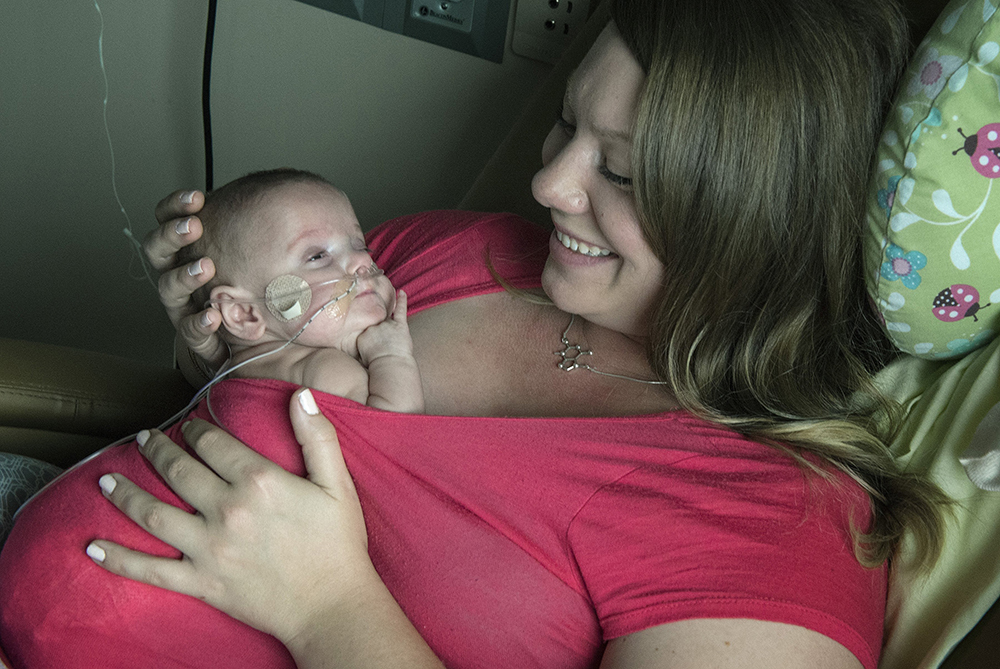
As many as 4 million babies worldwide die each year during their first month of life, and infants born early or at a low birth weight are at particular risk. Now a new study by the American Academy of Pediatrics suggests that kangaroo care can reduce infant deaths by more than one-third compared to conventional care.
Kangaroo care, to the uninitiated, is a method of holding a baby that involves prolonged skin-to-skin contact. The baby, naked except for a diaper and a piece of cloth covering his or her back, is placed in an upright position against a parent's bare chest. This snuggling of the infant inside the pouch of their parent's shirt, much like a kangaroo's pouch, led to the creation of the term "kangaroo care," and it's believed to help regulate the infant's temperature and breathing rate.
The study, "Kangaroo Mother Care and Neonatal Outcomes: a Meta-analysis," analyzed 124 studies published between 2000 and 2014. It found that, among newborns weighing less than 4.4 pounds who survived to receive kangaroo care, there was a 36 percent reduction in mortality and 47 percent lower risk of sepsis or major infection. Newborns who received kangaroo care also had higher oxygen levels and head circumference growth, as well as lower pain measures.
Kangaroo care also increased the likelihood of exclusive breastfeeding at hospital discharge by 50 percent, which the study's authors said provides additional protective health benefits for the infants. And while researchers said skin-to-skin care is particularly useful for low birth-weight babies born where medical equipment like incubators are scarce, the practice is beneficial for all newborns and mothers.
"This safe, low-cost intervention has the potential to prevent many complications associated with preterm birth and may also provide benefits to full-term newborns," researchers said. "The consistency of these findings across study settings and infant populations provides support for widespread implementation of KMC as standard of care for newborns."
Dr. Siobhan Dolan, medical advisor to the March of Dimes, agreed. "Sometimes people think medical care has to be high-tech, but these data suggest that something so simple can really be efficacious," she said, adding that in many U.S. hospitals, full-term newborns are given skin-to-skin contact with mom right after birth, "but it's still not routine practice for all health care providers."
Hollee Actman Becker is a freelance writer, blogger, and a mom. Check out her website holleeactmanbecker.com for more, and follow her on Twitter at @holleewoodworld.
